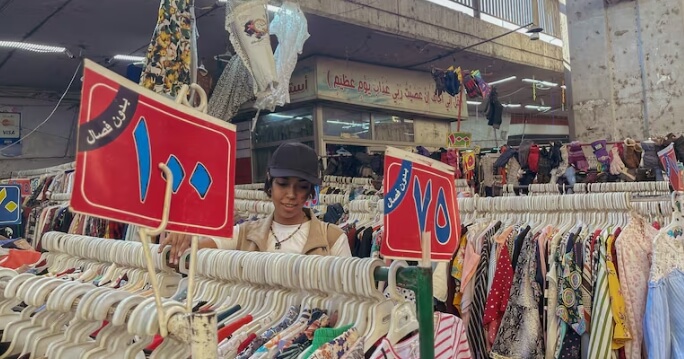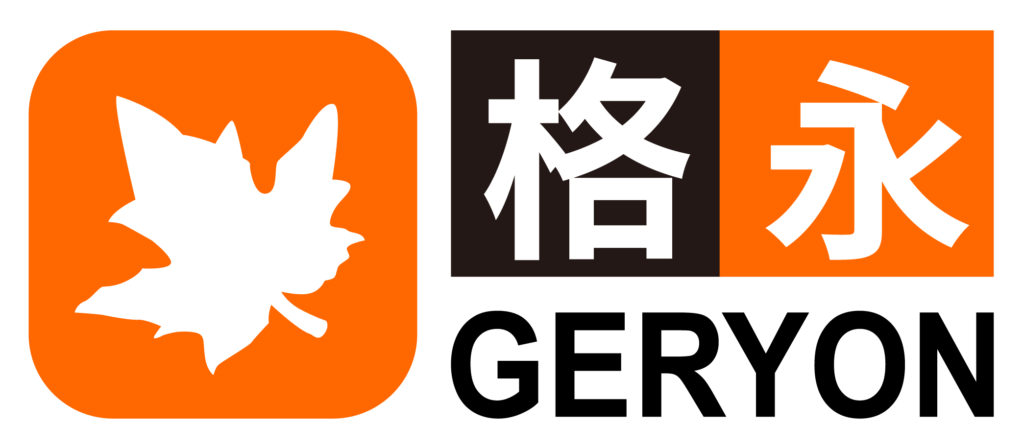The global market for secondhand clothing has grown exponentially in recent years, with many businesses seeking high-quality Egypt used clothes for wholesale export. Egypt, with its rich textile history and affordable sourcing options, has become a go-to destination for bulk buyers looking to import secondhand apparel. Whether you’re a retailer looking to stock up on affordable fashion or a distributor aiming to meet the demands of your customers, this guide will provide valuable insights into sourcing top-tier Egypt used clothes for your business.

Table of Contents
1. Introduction: Why Choose Egypt Used Clothes for Wholesale Export?
The global market for secondhand clothing has seen significant growth, driven by both consumer demand for affordable fashion and a growing awareness of sustainability. Egypt used clothes have emerged as a reliable and cost-effective option for wholesale buyers seeking to tap into this thriving market. Egypt’s strategic location, large domestic secondhand clothing industry, and established export infrastructure make it an ideal sourcing hub for B2B businesses worldwide. In this guide, we’ll explore why sourcing Egypt used clothes could be the perfect solution for your wholesale business.
The Growing Demand for Secondhand Clothing
The rise in eco-consciousness, coupled with the increasing demand for affordable fashion, has contributed to a boom in the secondhand clothing market. More consumers are opting for used clothing not only as a way to save money but also as a way to reduce waste and support sustainable fashion. As this demand grows globally, Egypt used clothes offer a unique opportunity for wholesale buyers to cater to this trend. The Egyptian market has long had a thriving secondhand clothing industry, and this surplus is now being exported to countries all over the world.
Why Egypt is a Key Source for High-Quality Used Clothes
Egypt stands out as a key supplier of used clothes due to its large domestic supply and its strategic position in Africa and the Middle East. The country has a well-established network of wholesalers, textile markets, and export companies, making it easier for international buyers to source quality used apparel. Egypt’s expertise in sorting, grading, and processing used clothes ensures that Egypt used clothes are of high quality, affordable, and readily available for bulk purchase, making it an ideal choice for businesses looking to import secondhand apparel.
2. Understanding the Egypt Used Clothes Market
Sourcing Egypt used clothes requires a good understanding of the local market, including the types of clothing available, industry standards, and the logistics involved. This section will provide you with essential insights into the Egyptian used clothing industry, including trends, quality standards, and the most commonly exported clothing items.
Key Trends in the Egypt Used Clothes Industry
The Egypt used clothes industry is influenced by several key trends. One of the major factors driving this market is the growing focus on sustainability and the circular economy. In Egypt, used clothing is often sourced from a combination of local donations and imports, then sorted, cleaned, and packed for export. Another significant trend is the increasing demand for quality secondhand clothes, especially in markets like Europe, Asia, and Africa. The Egyptian market has become adept at sorting clothes by quality and type, making it easier for international buyers to find specific items they need for their business.
Types of Apparel Available for Wholesale Export
In Egypt, used clothes are typically classified into various categories, depending on the garment type and quality. Wholesale buyers can find a range of items, from casual wear and sportswear to high-end fashion brands. Popular categories of Egypt used clothes include men’s, women’s, and children’s clothing, as well as specialized items like shoes, handbags, and accessories. Whether you’re sourcing bulk clothing for resale in your store or looking for niche products, Egyptian wholesalers can meet a variety of needs, offering a diverse selection of high-quality used apparel for export.
3. How to Source High-Quality Egypt Used Clothes
When sourcing Egypt used clothes, it’s crucial to know how to identify reliable suppliers and assess the quality of the garments. This section will provide practical tips on finding reputable exporters, understanding the grading system, and managing logistics for a smooth wholesale purchase experience.
Identifying Reliable Suppliers and Exporters
Finding reliable suppliers for Egypt used clothes is key to ensuring a successful sourcing experience. Many Egyptian wholesalers and exporters have long-standing relationships with international buyers, but it’s essential to do your due diligence. Look for suppliers who are well-established in the industry, have positive reviews, and can provide references from other B2B buyers. Additionally, attending trade shows or networking events in Egypt can help you build direct relationships with trusted suppliers and gain a better understanding of the local market.
Assessing the Quality of Used Clothing
Quality is paramount when sourcing Egypt used clothes, especially since you’ll be reselling these garments to customers. The grading system used in Egypt often classifies clothes as “Grade A” (excellent condition), “Grade B” (good condition with slight wear), and “Grade C” (heavily worn items that are often reprocessed). As a buyer, it’s important to clearly define the quality level you’re seeking and ensure that the supplier can meet your specific requirements. Requesting samples before placing large orders and inspecting clothing on-site or through photos can help ensure the quality of the Egypt used clothes you import.
Packaging and Shipping Considerations
Once you’ve selected your supplier and decided on the quality of Egypt used clothes you want to purchase, it’s time to consider packaging and shipping. Egyptian exporters typically pack the clothing into bales, which are then sealed and prepared for shipment. Be sure to discuss shipping terms and costs with your supplier and ensure that the packaging is durable enough to withstand international transport. The most common shipping methods are by sea freight or air freight, depending on the volume and urgency of your order. Ensure that all shipping and customs documentation is in order to avoid delays.
4. The Benefits of Importing Egypt Used Clothes for Your Business
Importing Egypt used clothes offers a range of benefits, including cost-effectiveness, sustainability, and access to a growing market for secondhand goods. This section will highlight the key advantages of sourcing used clothing from Egypt and why it can be a profitable choice for your business.
Cost-Effectiveness and Sustainability
One of the biggest advantages of sourcing Egypt used clothes is the cost savings compared to buying new apparel. Secondhand clothing from Egypt is typically priced lower, allowing businesses to offer affordable products to consumers while maintaining healthy profit margins. Moreover, the growing trend toward sustainability in fashion means that more consumers are seeking eco-friendly alternatives, such as used clothing. By importing Egypt used clothes, your business can tap into this demand, helping to reduce textile waste while providing consumers with high-quality, affordable clothing options.
Meeting Consumer Demand for Eco-Friendly Fashion
As consumers become more environmentally conscious, there’s a growing demand for sustainable and ethically sourced fashion. By offering Egypt used clothes to your customers, your business aligns with these values, giving you a competitive edge in a market that prioritizes sustainability. Sourcing used apparel from Egypt allows you to provide eco-friendly products while supporting the circular economy, which not only attracts eco-conscious consumers but also enhances your brand’s reputation.
5. Best Practices for B2B Buyers in the Egypt Used Clothes Market
To successfully import Egypt used clothes, it’s important to follow industry best practices for sourcing, negotiating, and managing your wholesale orders. This section will guide you through the best approaches for working with Egyptian suppliers and ensuring that your import process runs smoothly.
Negotiating Prices and Payment Terms
When sourcing Egypt used clothes, negotiating favorable pricing and payment terms is crucial for ensuring that your business remains profitable. Many suppliers in Egypt are open to negotiating bulk purchase discounts, so be sure to ask about price breaks for larger orders. Additionally, clarify payment terms in advance, including deposit amounts, payment methods, and timelines. Establishing clear and mutually beneficial agreements can help build long-term relationships with suppliers and ensure smooth transactions.
Building Long-Term Relationships with Suppliers
Building strong, long-term relationships with Egypt used clothes suppliers is essential for securing reliable and consistent orders. When working with Egyptian wholesalers, maintain open communication and ensure that both parties have clear expectations. Regularly checking in with suppliers about inventory levels and shipment timelines can help prevent delays and ensure that your business always has access to the used clothing you need.
Understanding Import Regulations and Tariffs
Before importing Egypt used clothes, it’s important to familiarize yourself with the import regulations and tariffs that apply in both Egypt and your destination country. Different countries have varying rules around the importation of secondhand goods, so make sure you comply with local regulations to avoid potential fines or delays. Understanding these regulations ahead of time can help you streamline the import process and ensure that your shipments arrive on time and without complications.
6. Conclusion: Why Egypt Used Clothes Should Be Your Go-To for Wholesale Export
In conclusion, Egypt used clothes offer numerous advantages for B2B buyers looking to source high-quality, affordable secondhand apparel. With a growing export market, reliable suppliers, and a diverse range of clothing available, Egypt has established itself as a leading hub for secondhand clothing. By following best practices for sourcing and building strong relationships with suppliers, your business can tap into this profitable market and meet the growing demand for eco-friendly, cost-effective fashion.







